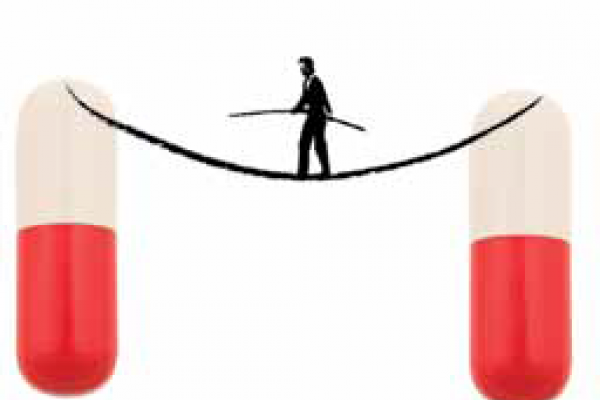AS WE MOVE along in 2013, more initiatives will be coming on line from Obamacare (technically the Patient Protection and Affordable Care Act, although if you rearrange the letters it spells "death panels"). Starting next year, insurance companies can no longer deny coverage for anyone with pre-existing conditions, which is good news for Mitch McConnell, who might want to have his permanent frown removed. Additionally, the law requires that all tea party members take a spoonful of castor oil before bedtime and wear coarse undergarments close to the skin. (Hey, it was a big bill, with lots of fine print.)
What won't change, however, is our relationship to the pharmaceutical industry, known as "Big Pharma"—which is not, as you may have thought, the nickname of a linebacker from one of our agricultural-state colleges, but rather shorthand for "companies that combine ground-breaking science with the business model of a crack dealer." No offense to crack dealers.
I recently had a personal experience with Big Pharma, after two weeks with a projectile cough that filled the middle distance with an alluring prismatic mist. Office colleagues did not appreciate my little air rainbows, so I contacted my doctor for advice, using the convenience of email rather than driving over and changing into a disposable paper gown which—and I feel strongly about this—does not adequately flatter the body of a mature man.
I described my symptoms with a level of detail that only a professional writer can do, using the lushness of the English language to create a memorable narrative of my condition and symptoms. Naturally, I expected my doctor to reply in kind. But she didn't: "You're sick. Here's a prescription." (Science geek.)
Read the Full Article

